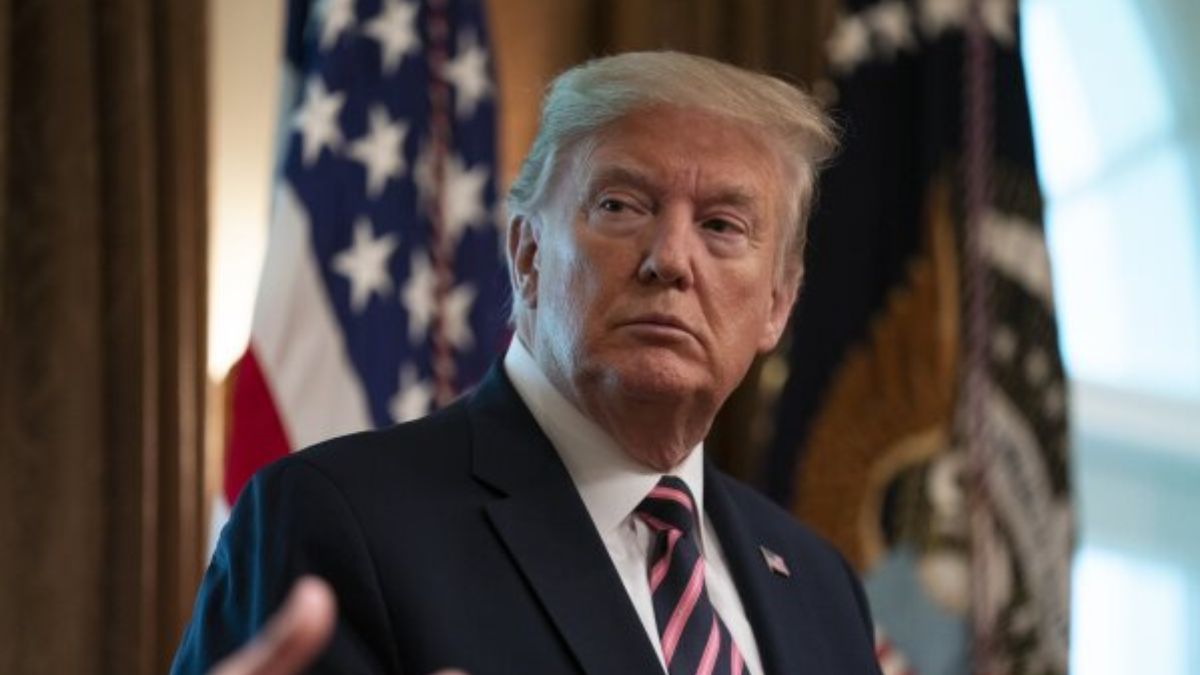US President Donald Trump’s decision to impose a 25 per cent tariff on Indian imports undercuts his own claim that India paused its military offensive against Pakistan during Operation Sindoor in exchange for favourable trade terms.
What was once portrayed by Trump as a successful example of coercive diplomacy has now unravelled into contradiction, especially as India continues to deny any link between trade negotiations and the May 10 ceasefire. This inconsistency exposes the fragility of Trump’s narrative and vindicates India’s position that its military decisions were guided solely by national security imperatives — not foreign pressure.
Operation Sindoor and the Trump narrative
In the aftermath of the April 22 Pahalgam terror attack that claimed 26 civilian lives, India launched Operation Sindoor — a swift and forceful retaliation targeting nine terror camps deep inside Pakistani territory. The operation, according to Prime Minister Narendra Modi, was executed with “decisive and calibrated precision,” striking Pakistan’s airbases and infrastructure so severely that, in Modi’s words, “Pakistan’s air bases are still in ICU.”
Amid these developments, Trump repeatedly claimed he had convinced India to halt the operation by threatening to cut off trade unless hostilities stopped.
In posts on Truth Social, he suggested he had extracted concessions by leveraging the threat of removing India from US trading preferences — a move, he asserted, which pushed India to the negotiating table and led to the May 10 ceasefire.
India’s rebuttal: No foreign hand in ceasefire
Trump’s claims were swiftly and repeatedly rejected by India. Prime Minister Modi, speaking in Parliament, flatly denied that any foreign leader — Trump included — had asked India to stop its military operations. “No leader of any country asked India to stop Operation Sindoor,” PM Modi said, reinforcing India’s autonomy in defence matters and insisting that the operation was halted only after achieving its objectives.
Supporting this stance, External Affairs Minister S Jaishankar disclosed in both Houses of Parliament that no communication took place between Trump and Modi during the period in question. Further, the Ministry of External Affairs emphasised that the ceasefire decision came solely from direct contacts between the Indian and Pakistani DGMOs, with no reference to trade or US mediation.
Trump’s tariff outburst
Trump’s imposition of 25 per cent tariffs on Indian imports, announced on Wednesday, has inadvertently undercut his own boastful claims. The announcement came ironically on the same day Parliament wrapped up its debate on Operation Sindoor.
This timing added a layer of dramatic irony, spotlighting the disconnect between Trump’s claims and his actions.
US court affidavit
Compounding the confusion was a US court affidavit, submitted by Commerce Secretary Howard Lutnick on May 23, in which the Trump administration insisted that the ceasefire was achieved after Trump offered India and Pakistan favourable trading access to avert full-scale war.
The affidavit, part of a legal defence of Trump’s tariff powers, argued that limiting presidential authority could undermine critical diplomatic tools — like the alleged use of trade threats in the India-Pakistan case.
Impact Shorts
More ShortsThis claim, now echoed in court documents, puts the Trump administration at odds with the Indian government’s repeated rebuttals. As the Court of International Trade found Trump’s use of the International Emergency Economic Powers Act (IEEPA) to levy global tariffs unlawful and arbitrary, the political logic of his India-Pakistan peace narrative also faces collapse.
India’s firm stand on sovereignty
India’s response has been clear and unwavering. Prime Minister Modi said that the decision to stop Operation Sindoor was made after objectives were met, not under foreign coercion. He further described how Pakistan pleaded for a ceasefire, with the DGMO reportedly telling India to please stop the attack as they can’t take it anymore.
This messaging stresses upon India’s sovereignty and its resistance to any form of external mediation in its dealings with Pakistan. The Modi government’s consistent rejection of Trump’s claim reveals a broader strategic posture that India will not allow its national security or geopolitical decisions to be mischaracterised by any power, however influential.
Tariffs as a tool of political theatre
The sequence of events shows how Trump’s tariff policy was not rooted in sound economic or diplomatic logic but rather in performative geopolitics. His “Liberation Day” narrative introducing sweeping tariffs to strong-arm other nations appears designed more for domestic political gain than real diplomatic leverage.
In India’s case, it boomeranged. By imposing punishing tariffs despite claiming a deal was struck, Trump effectively disproved his own narrative. The contradiction is glaring: if India indeed complied under pressure, where is the “good deal” that Trump promised? Instead, India received punitive trade actions, not rewards.
Vindication for India
Trump’s tariff move against India has inadvertently vindicated New Delhi’s position that the decision to cease hostilities with Pakistan was made independently, with no linkage to trade concessions. His conflicting narratives boasting about coercion on one hand and penalising India on the other reveal the transactional and often contradictory nature of his diplomacy.
By refusing to be drawn into this narrative, India has preserved both its strategic autonomy and moral authority. As Prime Minister Modi and other ministers have reiterated, national interest and sovereignty and not foreign threats dictate India’s military decisions.
)